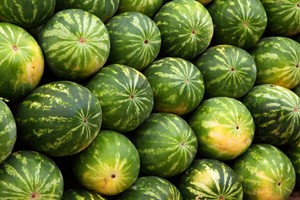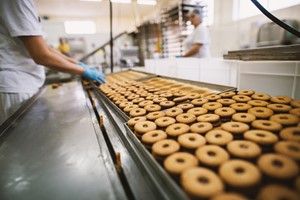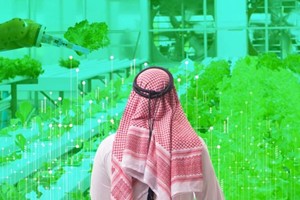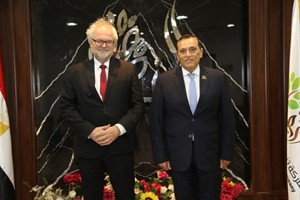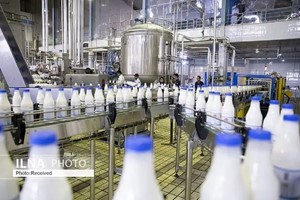Local demand has been increasing so rapidly that the increase of production is not enough. Only watermelon is exported to neighboring countries according to a recent report by Research and Markets. Date-palms, grapes, citrus, figs and peaches constitute the major fruit-trees in Saudi Arabia. The cultivated area and production are relatively small, except for date-palms where more than 12 million trees are widely grown and surplus production is exported every year. Saudi Arabia food consumption net value is about USD113 billion for 2016, according to a recent report by Mordor Intelligence. The increasing market for fruits and vegetables in Saudi Arabia is attributed to the growing disposable incomes of the people and the increasing health concerns of the Saudi population. The report stated that the newly appointed Minister of Agriculture Waleed Al-Kuraiji said that the Kingdom will rely completely on imported wheat starting from 2016. Under the new plan, the entitlement for subsidies would be available for the crops with least water requirements. The conditions in Saudi Arabia are unfavorable for the cultivation of most fruits and vegetables, with only 1.67 percent of arable land in the total land available. Saudi Arabia has the highest production of fruits and vegetables among all the GCC countries. The country was the largest producer in the GCC region, due to its favorable government policies for domestic production of fruits and vegetables. Due to the growing consumption of fruits and vegetables, Saudi Arabia tried to boost its agricultural output by increasing productivity so that nation could be self-sufficient. The country could not continue with this level of production due to the scarcity of water resources. This again increased the GCC countries' reliance on import of fruits and vegetables. Due to the scarcity of water, the GCC countries' domestic production can never satisfy its domestic consumption. To avoid complete reliance on fruits and vegetable imports the Saudi government has formulated policies that encourage farmers to grow crops that require low water, over crops that consume more water. Agriculture accounts for 85 percent of the water consumption in the country. Most of the water utilized for the cultivation of fruits and vegetables is drawn from ground water resources and desalination plants. Water from these plants is highly subsidized; hence, the government plans to diversify the type of crops grown in the region to those that consume less water. The Saudi government is encouraging agricultural companies to invest in foreign countries that have comparative advantage in producing certain crops and re-export their products back to Saudi Arabia. The Saudi government is providing financial incentives to encourage Saudi investors to take part in this food security initiative and invest overseas.


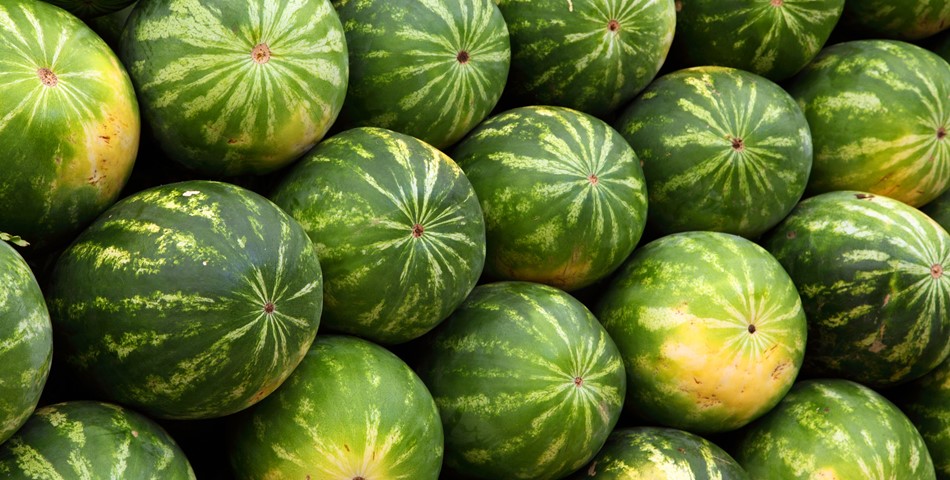
Saudi Arabia is growing a wide range of vegetables and fruits in the recent years, which are essential to farmers as high-value cash crops. The major vegetable crops include tomato, cucumber, eggplant, onion, watermelon, squash and pumpkin. The kingdom constructed greenhouses for tomato and cucumber production. Saudi is the largest consumer of food products, among the GCC countries. Saudi Arabia accounts for around 51 percent of the total food retail sales in the GCC region, thanks to the rising population and the increasing disposable income of people in the country, according to a recent report by Technavio. The report's analyst predicts the food retail market in Saudi Arabia to grow at a CAGR of around 5 percent by 2020.



